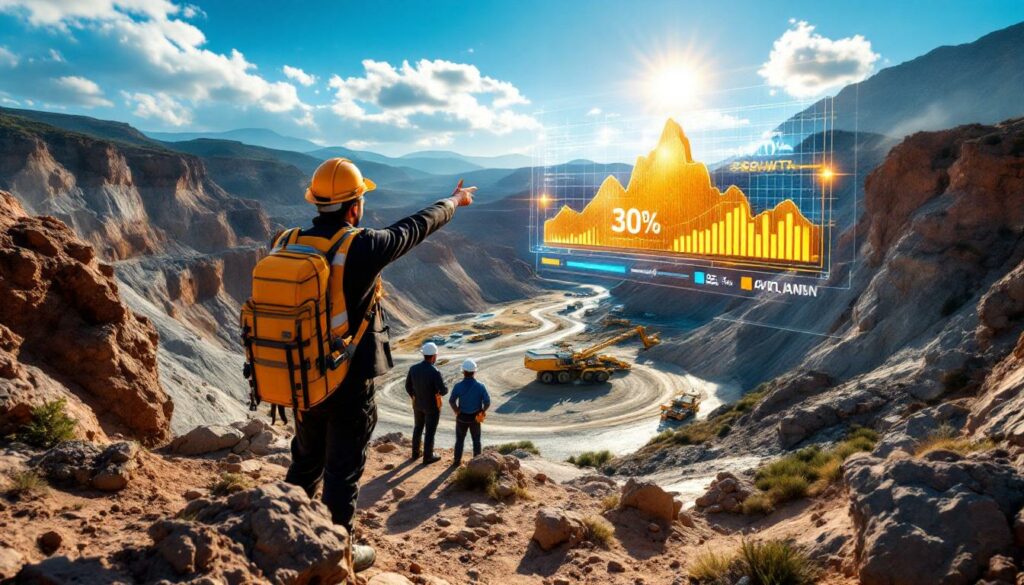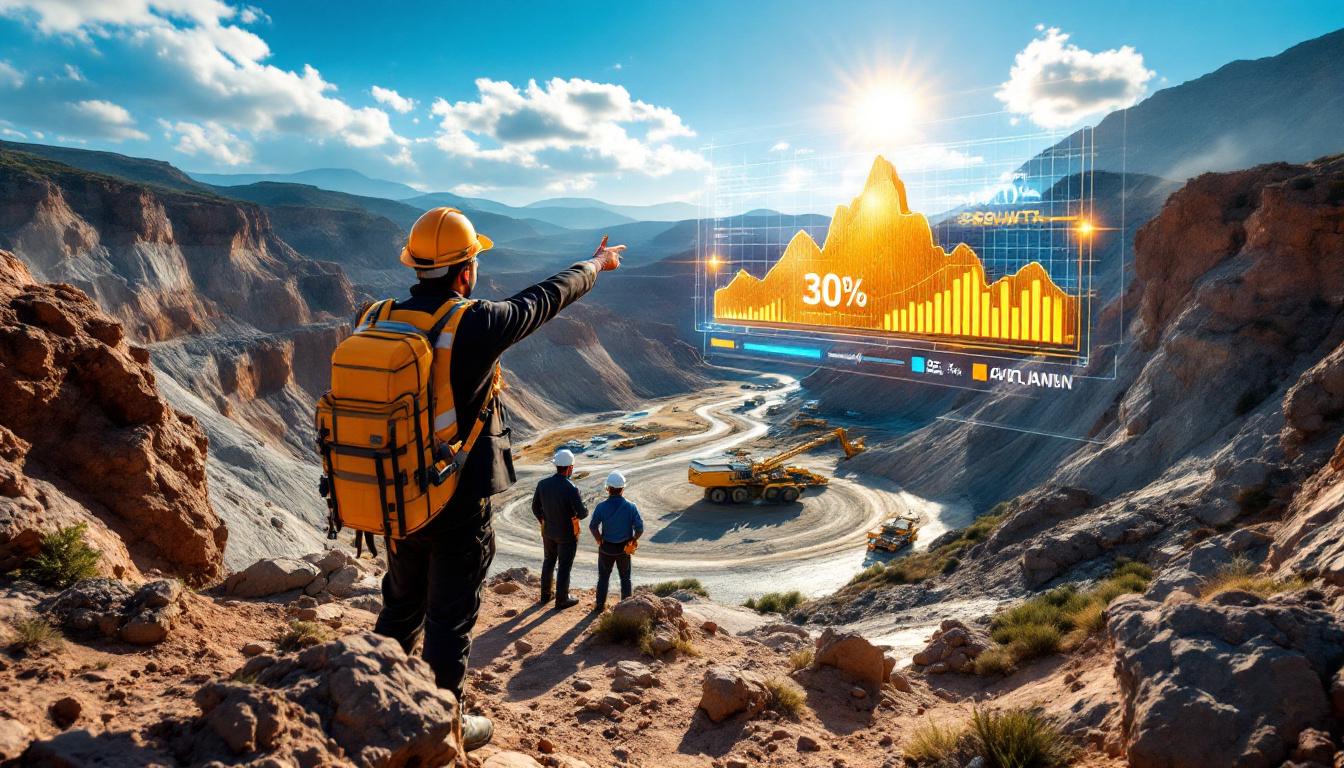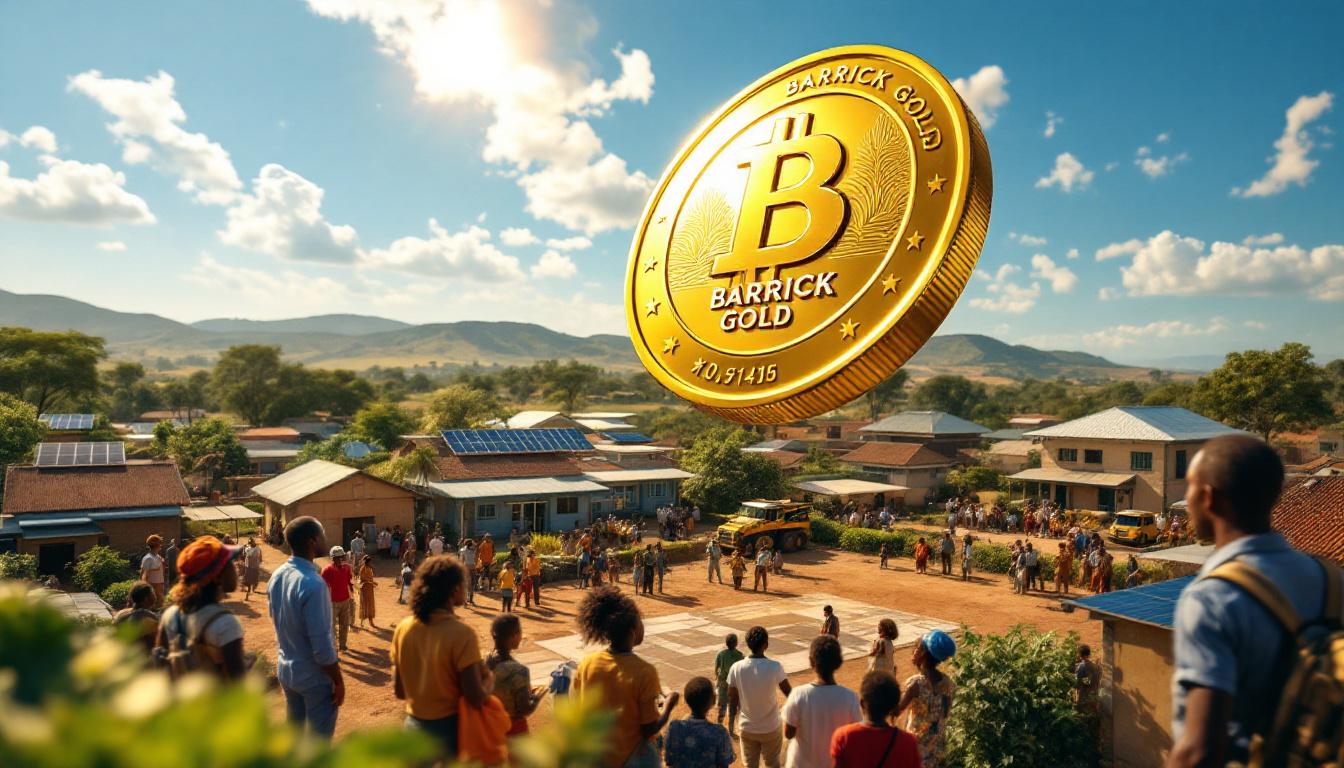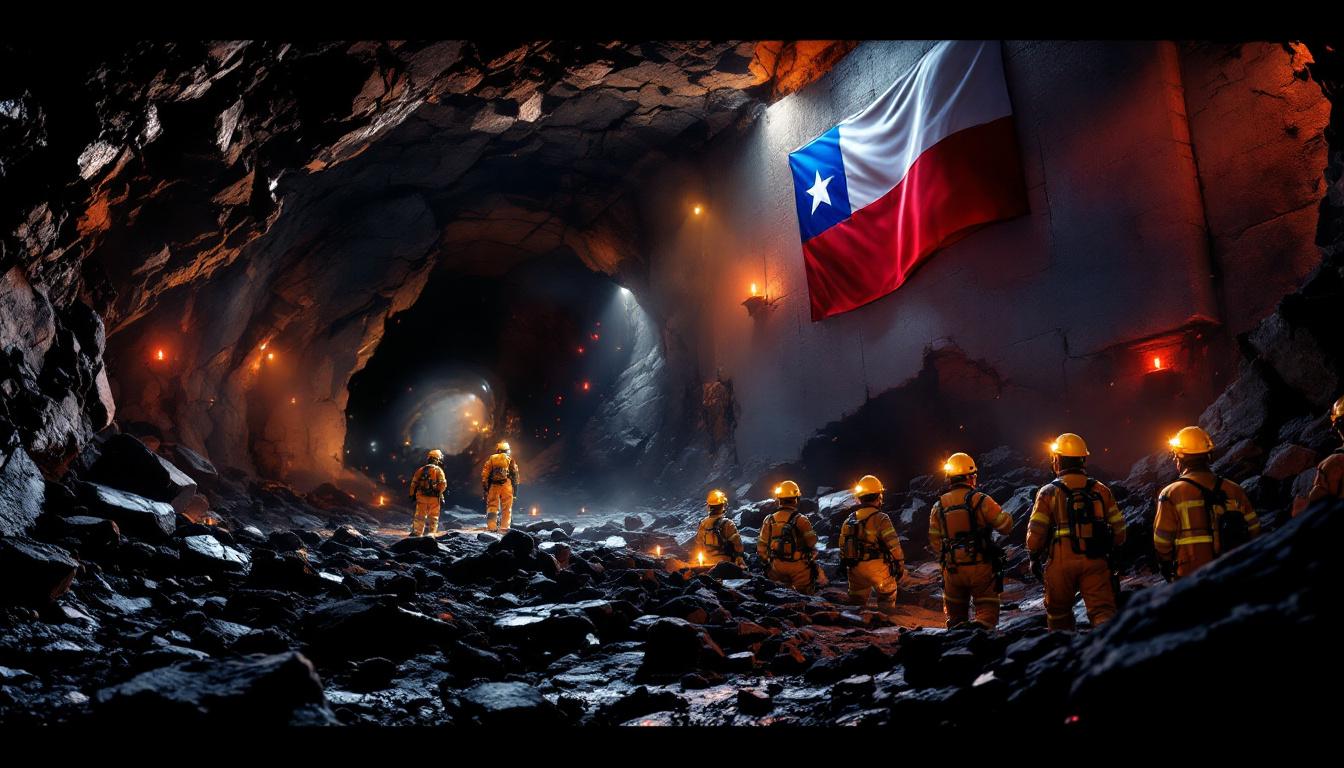Understanding Argentina's Mining Sector: Iván Grgic's Vision and Leadership
Argentina's mining sector stands at a pivotal moment of transformation, with unprecedented opportunities for growth and development. The industry has evolved from being a minor player in the country's economy to becoming an increasingly significant contributor to Argentina's productive dialogue. This shift represents a fundamental change in how mining is perceived and integrated into the national economic strategy.
The Mining Sector's Economic Contribution
Mining in Argentina has been gaining momentum over the past two decades, with the sector showing strong signs of growth. While specific export figures require verification from official sources, the industry is experiencing notable expansion, particularly in gold and copper exploration that are advancing toward construction and operational phases.
As Iván Grgic and the role of the mining sector in Argentina becomes more prominent, the President of the San Juan Mining Chamber (CMSJ), emphasizes: "The mining sector is now part of the dialogue about Argentina's productive sectors, and that's an absolutely relevant development" (Ámbito.com, August 2025). This inclusion in the national economic conversation marks a significant shift in Argentina's productive identity.
San Juan province specifically is emerging as a national epicenter for copper production, with multiple projects in various stages of development. These advancements position Argentina to play a more significant role in the global energy transition, which demands increased copper price insights and production for electrification infrastructure.
Who is Iván Grgic and What is His Role in Argentina's Mining Sector?
Iván Grgic serves as the President of the San Juan Mining Chamber (CMSJ), assuming this leadership position in July 2025 with a mandate extending to 2027. He succeeded Ricardo Martínez in this role, continuing the chamber's work with a focus on sustainable industry development.
Grgic's Background and Leadership Approach
Beyond his role at the CMSJ, Grgic functions as the Institutional Relations Manager at Vicuña Corp, a major mining company with significant operations in Argentina. This dual position gives him unique insights into both corporate and industry-wide perspectives.
On his appointment, Grgic expressed both honor and confidence: "First, I would say with great honor on behalf of Vicuña company that assumes the presidency and proposes me for that role, and secondly with great confidence because the Executive Committee is in some way a continuation of the previous one" (Ámbito.com, August 2025).
Grgic's leadership style emphasizes continuity and collaboration through the Chamber's executive committee. He advocates for mining excellence that extends beyond environmental considerations to include local employment and supplier development. His approach places significant importance on knowledge transfer as a fundamental aspect of mining industry evolution in Argentina.
How is the RIGI Transforming Argentina's Mining Landscape?
The Investment and Production Growth Regime (RIGI) represents a cornerstone of Argentina's strategy to position itself competitively in the global mining market. Rather than offering mere "facilities" to mining companies, Grgic characterizes the RIGI as establishing essential "conditions" that enable Argentina to compete effectively with other mining jurisdictions.
Key Aspects of the RIGI Framework
"I would say these are conditions rather than facilities… Because 'facility' suggests something the company isn't taking on, while 'condition' speaks of a country putting itself in a competitive position compared to other countries," Grgic explains (Ámbito.com, August 2025).
The RIGI creates a comprehensive umbrella of favorable conditions for mining investment. As Grgic notes: "The RIGI is clearly like a set of conditions put into a single regime, and that is truly the great new umbrella of good conditions" (Ámbito.com, August 2025).
This national framework complements provincial initiatives like San Juan's Decree 007, which enhances environmental assessment quality and technical detail. According to Grgic, this decree provides "more quality, but also more serenity and more technical detail, including more control over environmental evaluations of projects" (Ámbito.com, August 2025).
Implementation of the RIGI requires time as new organizational structures and evaluation processes develop. The regime aims to establish a competitive framework comparable to other mining countries, creating consistency and predictability for investors.
What is San Juan's Position in Argentina's Mining Future?
San Juan province is poised to become Argentina's premier mining region, particularly in copper production. With multiple projects advancing toward construction and operation phases over the next 5-10 years, the province is positioning itself as a national epicenter for copper mining.
San Juan's Mining Advantages
The province has spent over two decades developing social consensus around mining activities, creating a stable environment for investment. This long-term approach has allowed San Juan to build both community support and technical expertise in the mining sector.
Grgic highlights the province's strategic importance: "Several copper projects can advance in the next 5 or 10 years in construction and operation… this obviously positions us as a national epicenter for copper, and Argentina begins to be a new world epicenter in this framework of energy transition" (Ámbito.com, August 2025).
Provincial government support through enhanced regulatory frameworks has created a predictable environment for mining development. San Juan has established a track record of environmental management and community engagement that serves as a model for other mining regions in Argentina.
How Does Argentina's Mining Sector Compare to Its Agricultural Industry?
The mining sector is increasingly being recognized as a potential economic powerhouse comparable to Argentina's traditionally dominant agricultural sector. This represents a significant shift in the country's productive dialogue, which has historically been dominated by agricultural exports.
Mining's Integration into Argentina's Productive Identity
"The productive history of the country has almost always been solely agro-export focused, and then it began to include industrial sectors and regional economies. And in the last two years, we have put production at all levels into that dialogue, and the mining sector is also entering," explains Grgic (Ámbito.com, August 2025).
This integration of mining into Argentina's economic identity marks a profound shift in how the country views its productive capabilities and export potential. While agriculture remains a cornerstone of the economy, mining offers diversification opportunities that can help stabilize economic performance during agricultural downturns.
RIGI applications are catalyzing Argentina's embrace of mining as a core industry, creating a framework that allows the sector to develop alongside traditional economic drivers rather than in competition with them.
What Role Do International Partnerships Play in Argentina's Mining Development?
International collaboration, particularly with neighboring Chile, has been a natural and historical component of Argentina's mining development. Grgic emphasizes that cross-border partnerships have been commonplace for decades, with Chilean companies frequently participating in Argentine mining operations.
Balancing International Expertise with Local Development
"Our relationship with Chile is historical, spanning 200 years, it's not outside our historical agenda. Having Argentines in Chile and Chileans in Argentina is nothing new," notes Grgic (Ámbito.com, August 2025).
Despite this openness to international partnership, Grgic emphasizes that local priorities remain paramount: "Let it be clear that there is a priority for locals in employment and contracts" (Ámbito.com, August 2025). This approach ensures that international expertise serves as a vehicle for knowledge transfer rather than replacing local capabilities.
The goal of these partnerships is developing domestic capabilities while leveraging global experience. As mining operations mature in Argentina, the sector increasingly relies on local expertise that has been developed through this knowledge transfer process.
How is the Mining Industry Addressing Environmental and Social Concerns?
The mining industry in Argentina, particularly in San Juan, has developed a "social agreement" over more than two decades. This agreement represents an ongoing commitment to excellence in mining practices that encompasses environmental management, water stewardship, local employment, supplier development, and professional quality.
Elements of Mining Excellence in Argentina
"There is a path of more than 20 years to build a social agreement, and that social agreement is a living agreement, which means that one must always practice mining excellence. And that not only refers to the environment, to water management, but also to local employment, local suppliers, the development of professional quality, and the quality of suppliers," Grgic explains (Ámbito.com, August 2025).
Environmental management and water stewardship serve as foundational principles for the industry, with companies implementing comprehensive monitoring and protection systems. Beyond environmental considerations, the industry places significant emphasis on prioritizing local employment and supplier development.
This holistic approach to mining excellence has allowed the industry to build trust with communities and governmental authorities while continuously improving operational standards. Additionally, mine reclamation innovation has become an increasingly important aspect of Argentina's sustainable mining practices.
What are the Industry's Self-Improvement Mechanisms?
The mining industry has developed robust self-criticism mechanisms that originated in health and safety standards but have expanded to encompass broader considerations. This culture of continuous improvement has led to advancements in regulatory compliance, gender considerations, diversity, and overall operational quality.
Evolution of Industry Self-Regulation
"The mining industry is an industry with a very strong, permanent self-criticism system, because that perhaps started focused on health and safety standards, which is like the first point in mining, and that self-criticism has progressed toward recognition of regulations, of particular respect and consideration for gender, especially for women," Grgic notes (Ámbito.com, August 2025).
This self-criticism culture originated in health and safety protocols but expanded to include regulatory compliance and standards adherence. The industry has incorporated gender considerations and diversity initiatives, resulting in richer, more human-centered mining operations.
The continuous improvement approach allows the industry to anticipate challenges and adapt to changing social and environmental expectations before they become regulatory requirements.
How is the Industry Preparing for Future Growth?
As Argentina's mining sector prepares for significant expansion, industry leaders are focusing on strategic, long-term planning with serious consideration for responsibility and sustainability. The Chamber of Mining understands its role in supporting this growth trajectory while maintaining high standards of operational excellence.
Strategic Growth Preparation
Knowledge transfer stands at the center of the industry's growth strategy. As Grgic emphasizes: "Mining is a space for knowledge transfer, and today more and more San Juan residents and Argentines are the ones who know about mining, who are beginning to know about copper, whether in production, operation, or construction" (Ámbito.com, August 2025).
This focus on developing local expertise ensures that Argentina's mining growth will be sustainable over the long term, with increasingly less reliance on external technical support. The industry is implementing long-term strategic planning with sustainability as a core principle.
By balancing growth ambitions with responsible practices, the industry aims to position Argentina as a key player in the global energy transition, supplying critical minerals for energy infrastructure and electrification.
FAQ: Argentina's Mining Industry
What is the RIGI and how does it affect mining investment?
The RIGI (Investment and Production Growth Regime) is Argentina's comprehensive framework designed to create competitive conditions for mining investment. Rather than simply offering incentives, it establishes a regulatory environment that allows Argentina to compete with other mining jurisdictions globally. The regime requires detailed applications from mining companies and is being implemented gradually to ensure proper evaluation and registration processes.
How is San Juan positioning itself in Argentina's mining landscape?
San Juan province has established itself as a mining leader through 20+ years of developing social consensus around mining activities. With multiple copper projects advancing toward construction and operation phases, the province is becoming Argentina's copper mining epicenter. Provincial initiatives like Decree 007 enhance environmental assessment quality, creating favorable conditions for responsible mining development.
What role do Chilean companies play in Argentina's mining sector?
Chilean companies have historically participated in Argentina's mining sector, reflecting the 200-year relationship between the two countries. While international expertise is valued for knowledge transfer, priority is given to local employment and supplier contracts. This balance ensures that international collaboration contributes to building domestic capabilities rather than displacing local opportunities.
How does mining compare to agriculture in Argentina's economy?
Mining is increasingly recognized as a potential economic powerhouse comparable to Argentina's traditionally dominant agricultural sector. While agriculture has historically dominated Argentina's export profile, mining is now part of the national productive dialogue. The sector offers economic diversification opportunities and is gaining recognition for its contribution to national development.
What environmental safeguards exist in Argentina's mining industry?
Argentina's mining industry, particularly in San Juan, has developed comprehensive environmental management systems over two decades. These include rigorous water stewardship practices, enhanced environmental assessment processes through regulations like Decree 007, and continuous improvement mechanisms. The industry's self-criticism culture has expanded from safety concerns to encompass broader environmental and social considerations.
The Future of Mining in Argentina
Emerging Opportunities in Critical Minerals
Argentina's mining sector is strategically positioned to capitalize on the global energy transition through its critical mineral resources. The country's copper deposits are particularly significant as the world increases its focus on electrification and renewable energy infrastructure. This positions Argentina as an emerging global player in supplying the materials essential for combating climate change.
Strategic Mineral Resources
- Copper deposits gaining importance for global electrification needs
- Lithium resources supporting battery technology development
- Gold continuing to serve as a stable investment commodity
- Potential for rare earth elements and other critical minerals exploration
Building Local Capacity and Expertise
A central theme in Argentina's mining development is the transfer of knowledge and building of local capabilities. As international mining companies operate in the country, they contribute to developing domestic expertise that will sustain the industry long-term. This focus on capacity building extends from professional development to supplier capabilities.
Knowledge Transfer Mechanisms
- Training and development programs for local professionals
- Supplier development initiatives to enhance local business capabilities
- Technical collaboration with international experts
- Educational partnerships with universities and technical institutions
Balancing Growth with Responsibility
As Argentina's mining sector expands, industry leaders are focused on maintaining a balance between growth ambitions and responsible practices. This includes environmental stewardship, community engagement, and ensuring that mining benefits extend to local populations through employment and business opportunities.
Responsible Growth Strategies
- Environmental management systems that exceed regulatory requirements
- Community engagement programs that address local priorities
- Local employment and procurement policies
- Transparent communication about mining impacts and benefits
Positioning Argentina in the Global Mining Landscape
With its rich mineral resources and evolving regulatory framework, Argentina is positioning itself as an increasingly important player in the global mining industry. The country's emergence as a mining destination reflects both its geological potential and its efforts to create favorable conditions for responsible investment, as outlined in the Plan País Argentina mining roadmap which sets forth key principles for sustainable development.
Global Competitive Positioning
- Regulatory frameworks aligned with international standards
- Investment conditions competitive with established mining jurisdictions
- Growing recognition of Argentina's mineral potential
- Strategic location within South America's mining corridor
Further Exploration:
Readers interested in learning more about Argentina's mining sector and its development can explore related educational content from Ámbito, including their Energy Report series featuring interviews with key industry figures in the mining sector. For a comprehensive overview of upcoming copper projects in Argentina, the BNAmericas snapshot of Argentine copper projects provides valuable insights into the country's growing copper industry.
Disclaimer: This article contains forward-looking statements and industry projections based on current trends and expert opinions. The mining sector is subject to various risks including regulatory changes, commodity price fluctuations, and geopolitical factors that may affect actual outcomes. Readers should consult with financial and industry advisors before making investment decisions based on the information presented.
Looking to Capitalise on the Next Major Mineral Discovery?
Get ahead of the market with Discovery Alert's proprietary Discovery IQ model, which provides real-time notifications when significant mineral discoveries are announced on the ASX. Visit the discoveries page to understand how historic mineral discoveries have generated substantial returns for early investors.




